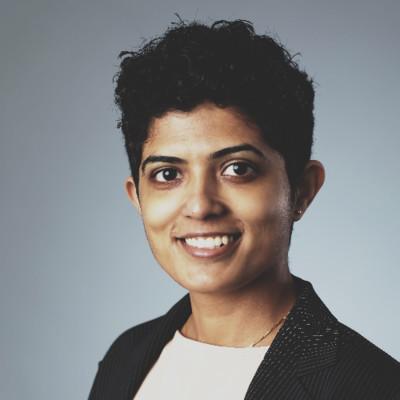Knowledge Graphs and Semantic Computing Speaker Series: Jennifer D’Souza

Jennifer D’Souza, a Postdoctoral Researcher at the TIB Leibniz Information Centre for Science and Technology in the R&D Department, will present "Semantic Publishing of Scientific Contributions in the Open Research Knowledge Graph."
Jennifer D’Souza is a Postdoctoral Researcher at the TIB Leibniz Information Centre for Science and Technology in the R&D Department. Her research interests mainly include developing supervised machine learning techniques for natural language processing to facilitate text mining and automated information extraction. Her current primary research theme is knowledge graph construction from scientific text by NLP methods. Aside from this, she is also interested in scientometrics.
Abstract:
The transfer of knowledge has not changed fundamentally for many hundreds of years: It is usually document-based-formerly printed on paper as a classic essay and nowadays as PDF. With around 2.5 million new research contributions every year, researchers drown in a flood of pseudo-digitized PDF publications. As a result research is seriously weakened. In this article, we argue for representing scholarly contributions in a structured and semantic way as a knowledge graph. The advantage is that information represented in a knowledge graph is readable by machines and humans. As an example, we give an overview on the Open Research Knowledge Graph (ORKG), a service implementing this approach. For creating the knowledge graph representation, we rely on a mixture of manual (crowd/expert sourcing) and (semi-)automated techniques. Only with such a combination of human and machine intelligence, we can achieve the required quality of the representation to allow for novel exploration and assistance services for researchers. As a result, a scholarly knowledge graph such as the ORKG can be used to give a condensed overview on the state-of-the-art addressing a particular research quest, for example as a tabular comparison of contributions according to various characteristics of the approaches. Further possible intuitive access interfaces to such scholarly knowledge graphs include domain-specific (chart) visualizations or answering of natural language questions.
Publications:
Markus Stocker, Allard Oelen, Mohamad Yaser Jaradeh, Muhammad Haris, Omar Arab Oghli, Golsa Heidari, Hassan Hussein, Anna-Lena Lorenz, Salomon Kabenamualu, Kheir Eddine Farfar, Manuel Prinz, Oliver Karras, Jennifer D’Souza, Lars Vogt, and Sören Auer (2023). FAIR scientific information with the Open Research Knowledge Graph. In B. Magagna (Ed.), FAIR Connect, vol. 1, issue 1, pp. 19–21. IOS Press.
Sören Auer, Allard Oelen, Muhammad Haris, Markus Stocker, Jennifer D’Souza, Kheir Eddine Farfar, Lars Vogt, Manuel Prinz, Vitalis Wiens, and Mohamad Yaser Jaradeh (2020). Improving Access to Scientific Literature with Knowledge Graphs. Bibliothek Forschung und Praxis, vol. 44, no. 3, pp. 516-529
Jennifer D’Souza (2022). Overview of STEM Science as Process, Method, Material, and Data Named Entities. Knowledge, 2, no. 4: 735-754.
If you are interested in this speaker series, please subscribe to our speaker series calendar: Google Calendar or Outlook Calendar.
This event is sponsored by Center for Informatics Research in Science and Scholarship